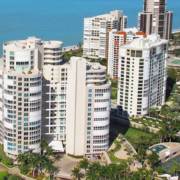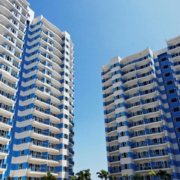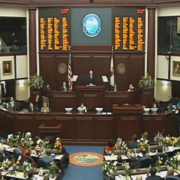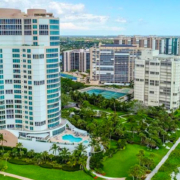Do you need to have a “physical place” for your association meetings?
During the early Covid times many Associations moved their board and members meetings to Zoom or to Telephone Conference under emergency powers granted by the Governor and the Legislature to Condominium and Homeowners Associations.
For Condominium Associations, Section 718.1265(1)(a), Florida Statues and for Homeowner’s Associations, Section 720.316(1)(a), Florida Statutes state that if a State of Emergency has been called in the area encompassed by the association, the board of directors may “Conduct board meetings, committee meetings, elections, or membership meeting, in whole or in part by telephone, real-time videoconferencing, or similar real-time electronic or video communication . . .” (emphasis added)
During the Covid State of Emergency, many Florida Condominium and Homeowners’ Associations got used to having their meetings purely on Zoom or Teleconference with no physical location stated our used for the meetings.
A lot of Associations liked these totally electronic meetings, especially in the off Season when many owners were out of town, and want to continue to do have them this way.
Now that the Covid State of Emergency rules and regulations have been lifted, we recommend that in addition to notice of the Zoom meeting sign-in or Teleconference call in number, a physical location of all Association meetings should also be stated and used to conform with the spirit of the law and to accommodate those who may not be computer savvy or have a handicap.
Section 617.0820(1), Florida Statutes provides that “the board of directors may hold regular or special meetings in or out of this state” wherever the board finds it prudent. The place may include the offices of the association’s attorney, accountant, manage or other location deemed appropriate by the board.
It does not appear that a Zoom meeting or Teleconference meeting is being held at any “place”. Place is described in the dictionary as “a physical environment”. Physical is defined as “having material existence.” So, an “electronic environment” of Zoom or Teleconference does not appear to be the same as a physical environment or place.
Once you have named a physical location for a meeting, Section 617.0820(4), Florida Statutes provides that unless prohibited by the articles of incorporation or bylaws, the board of directors may permit any or all directors to participate in a meeting by means of telecommunication, such as by conference call so long as all directors may simultaneously hear each other during the meeting. Those participating in a board meeting in this manner is considered to be present at the meeting.”
Now the physical location of the meeting does not need to be onsite or even in the County or Country where the property is located. However, it probably should be near the community to accommodate in house owners.
For the annual meeting of members in Condominiums, Section 718.11292)(d)1., Florida Statutes provides that: “Annual meeting of the unit owners must be held at a location provided for in the association bylaws and, if the bylaws are silent as to the location, the meeting must be held within 45 miles of the condominium property.”
Although it is fine to still have your Zoom or Teleconference Association meetings, remember to also designate a physical place for the meeting such as the board room, social room, pool house, club house, or manager’s office for most meetings of the members and the board.





